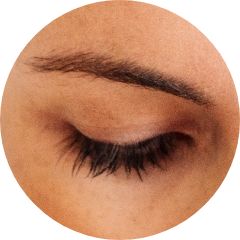Who Is A Candidate For Sleep Dentistry
Candidates for sleep dentistry include the following:
- Patients with mild to severe anxiety, panic disorder and dental phobia
- Patients with mild to severe gag reflex
- Patients who require longer dental procedures or a large amount of work that needs to be completed quickly
- Patients who are unable to get numb from local anesthesia
- Patients who are allergic to anesthetics or have dangerous reactions to local anesthetics
- Patients with medical conditions that make it difficult or impossible to be seen in a dental office
- Patients who are developmentally disabled
Approximately half of the population has some level of fear of the dentist. For some, this fear can be debilitating. Many patients avoid going to the dentist due to negative childhood experiences, anxiety, dental phobia, embarrassment, fear of pain and medical problems that make it difficult to receive dental care in a traditional setting. Avoiding the dentist can lead to serious dental and medical problems. Sleep/sedation dentistry provides a safe and effective way for special care patients to receive the dental treatment they need.
Can Anyone Be Sedated When They Receive Dental Care
Almost anyone can be sedated when they receive dental care. In some cases, an increase in stress and anxiety can aggravate a medical condition. In these cases, special care is required. Medical conditions that require special care and make it difficult or impossible to be seen in a dental office include:
- Serious heart disease
- Adrenal insufficiency
- Alzheimer’s disease
- Brain stem injuries
- Dangerous reactions to local anesthetics
- Developmental disabilities
Developmental disabilities that can make difficult or impossible to treat a patient in a traditional dental office setting include Cerebral Palsy, Alzheimer’s Disease, Parkinson’s Disease, Autism Spectrum Disorders, Down’s Syndrome, Fragile-X Syndrome, Fetal Alcohol Syndrome, Mental Retardation and Brain Stem Injuries. These patients are best treated in the safety and security of a hospital operating room. Dr. Kurtzman along with a specially trained assistant will repair and restore developmentally disabled patients’ mouths while they are asleep and are being monitored by a trained anesthesiologist.
Through sleep/sedation dentistry, Dr. Kurtzman is able to provide personalized, painless, perfect care for patients requiring special care. If you are looking for a sleep/sedation dentist to provide dental treatment for yourself or a special care patient in your practice, please contact our Sleep/Sedation Dentistry Specialists today to schedule a consultation. We look forward to hearing from you.



